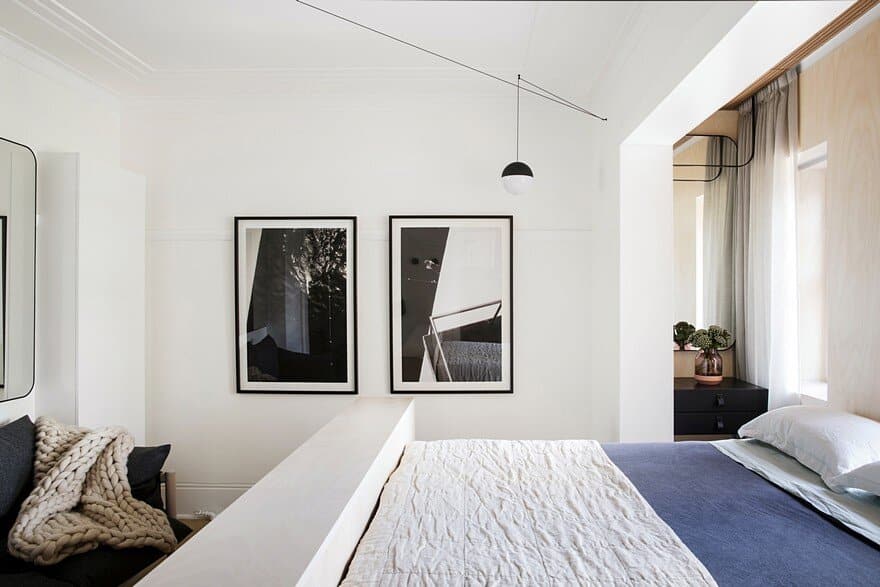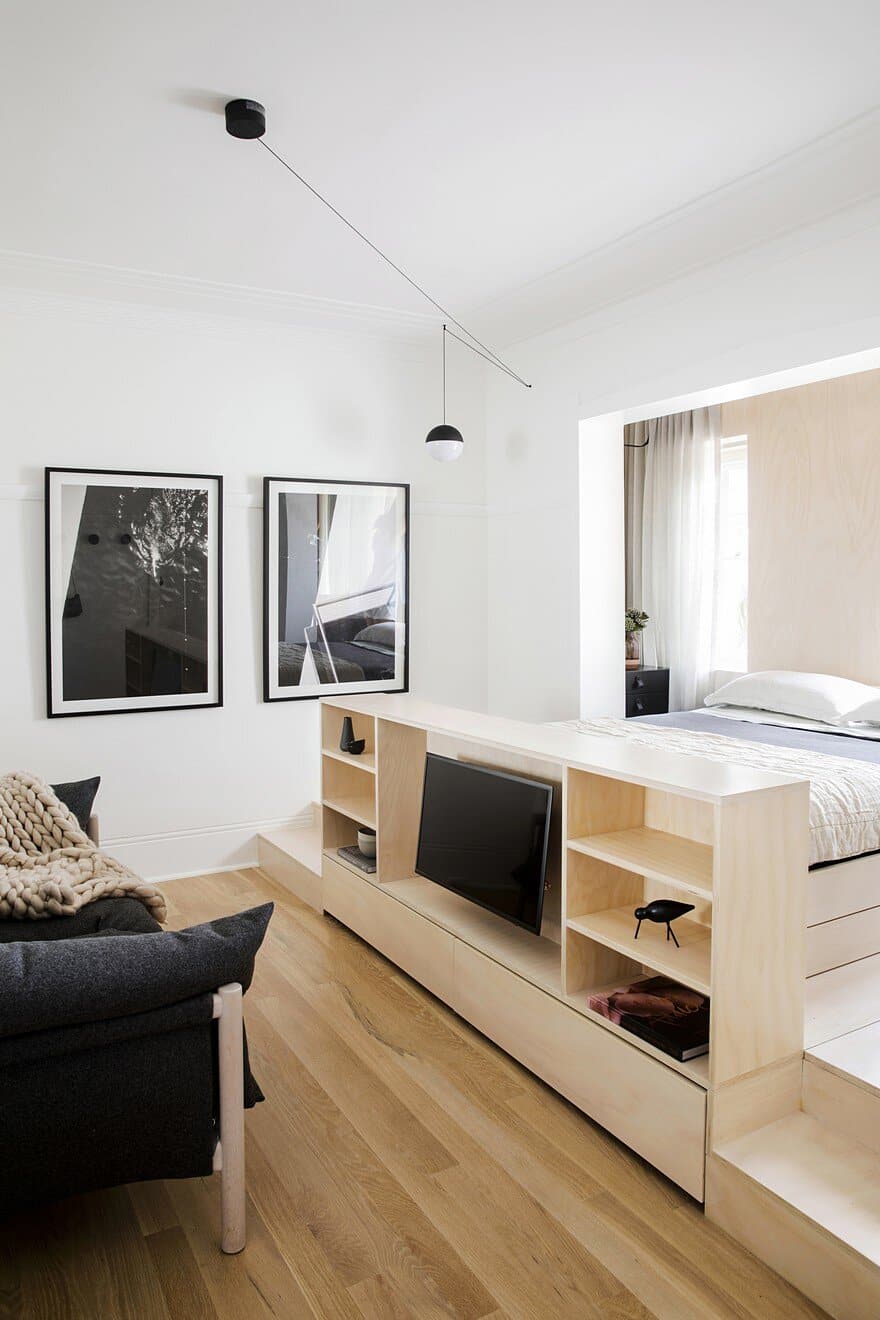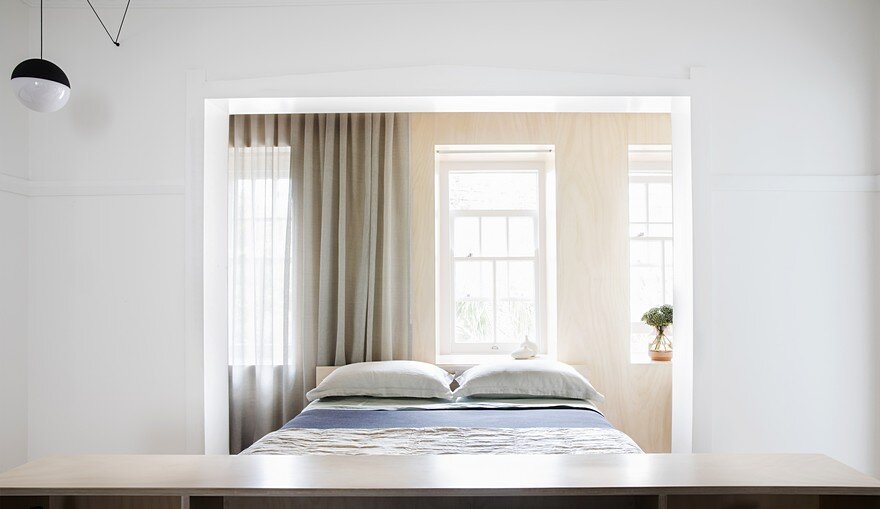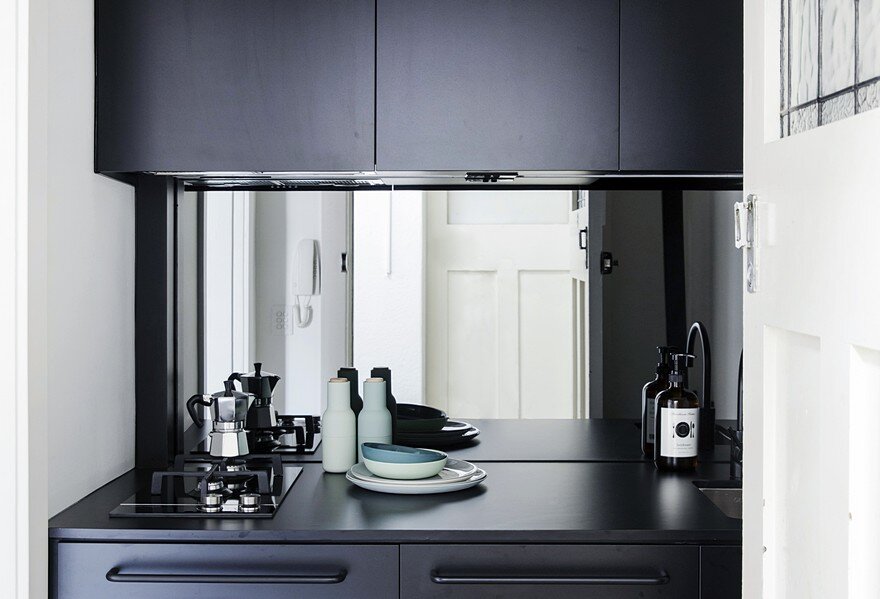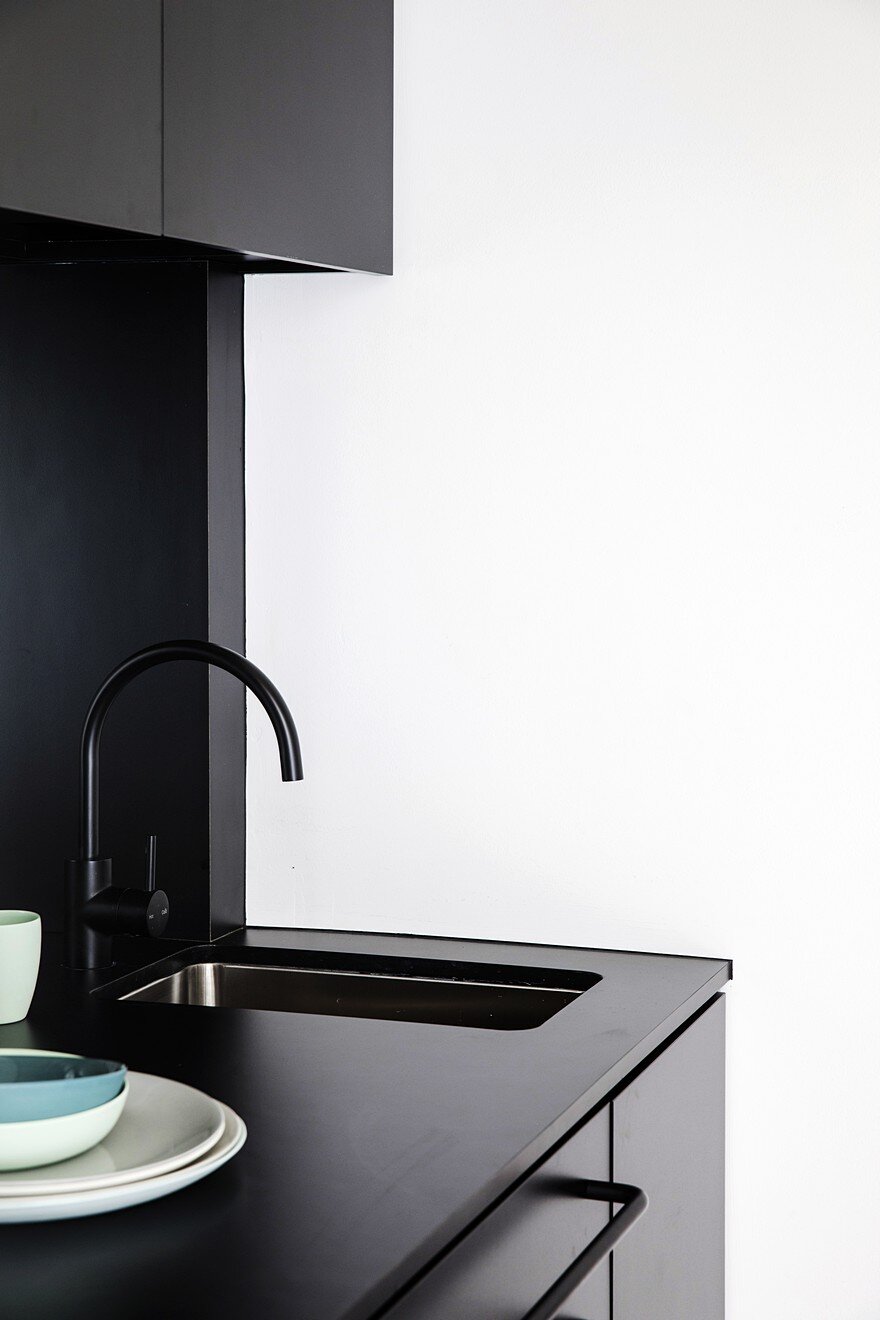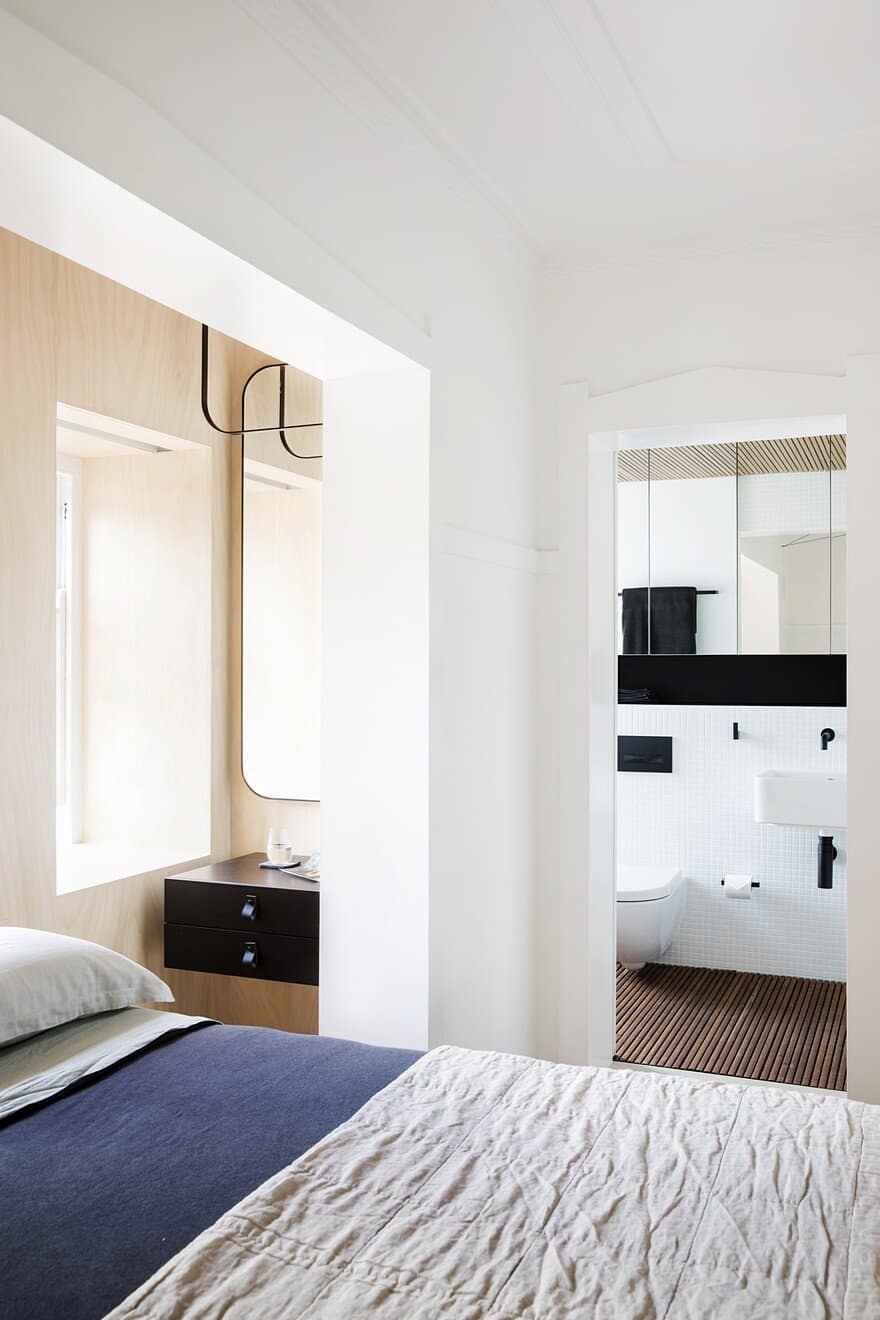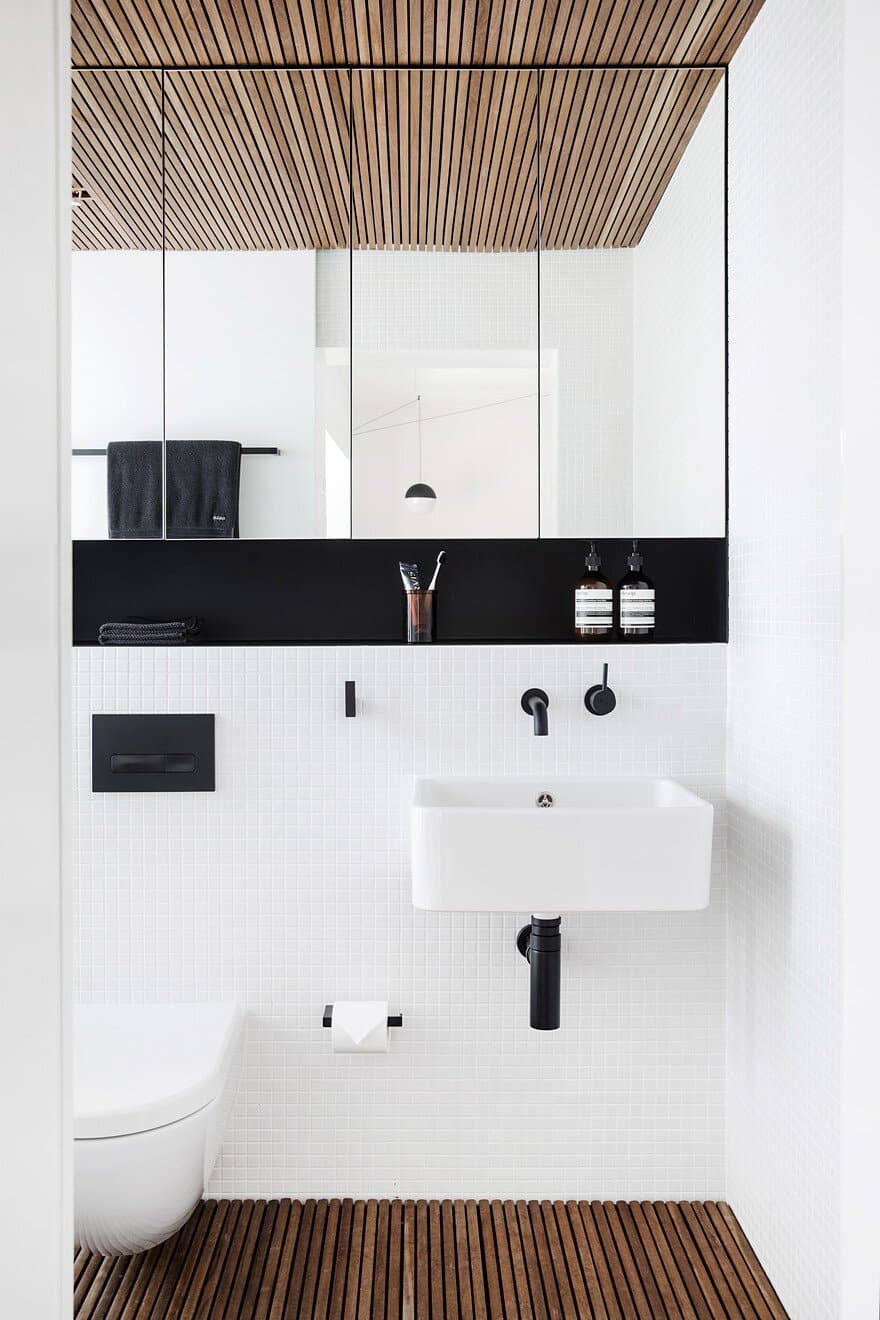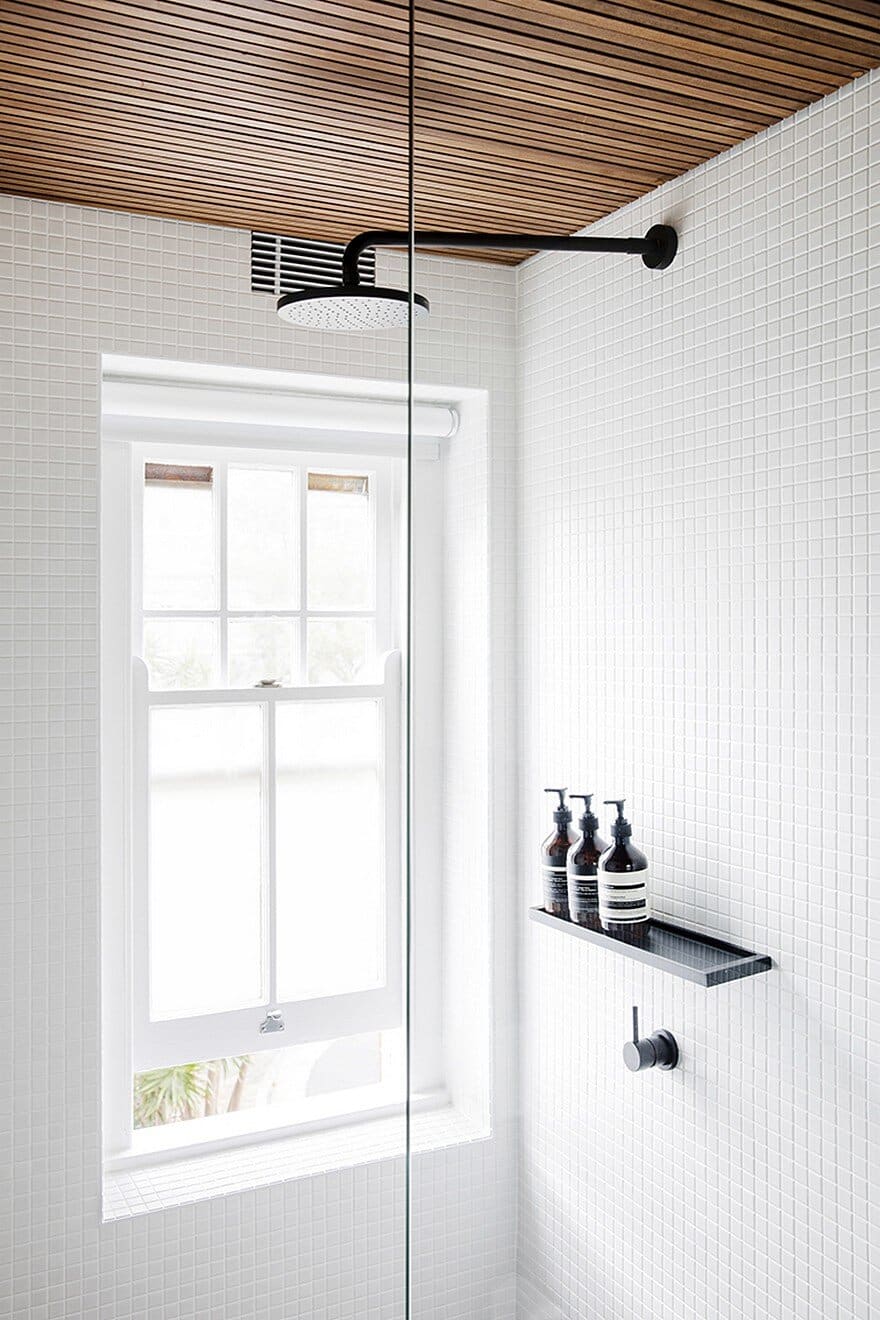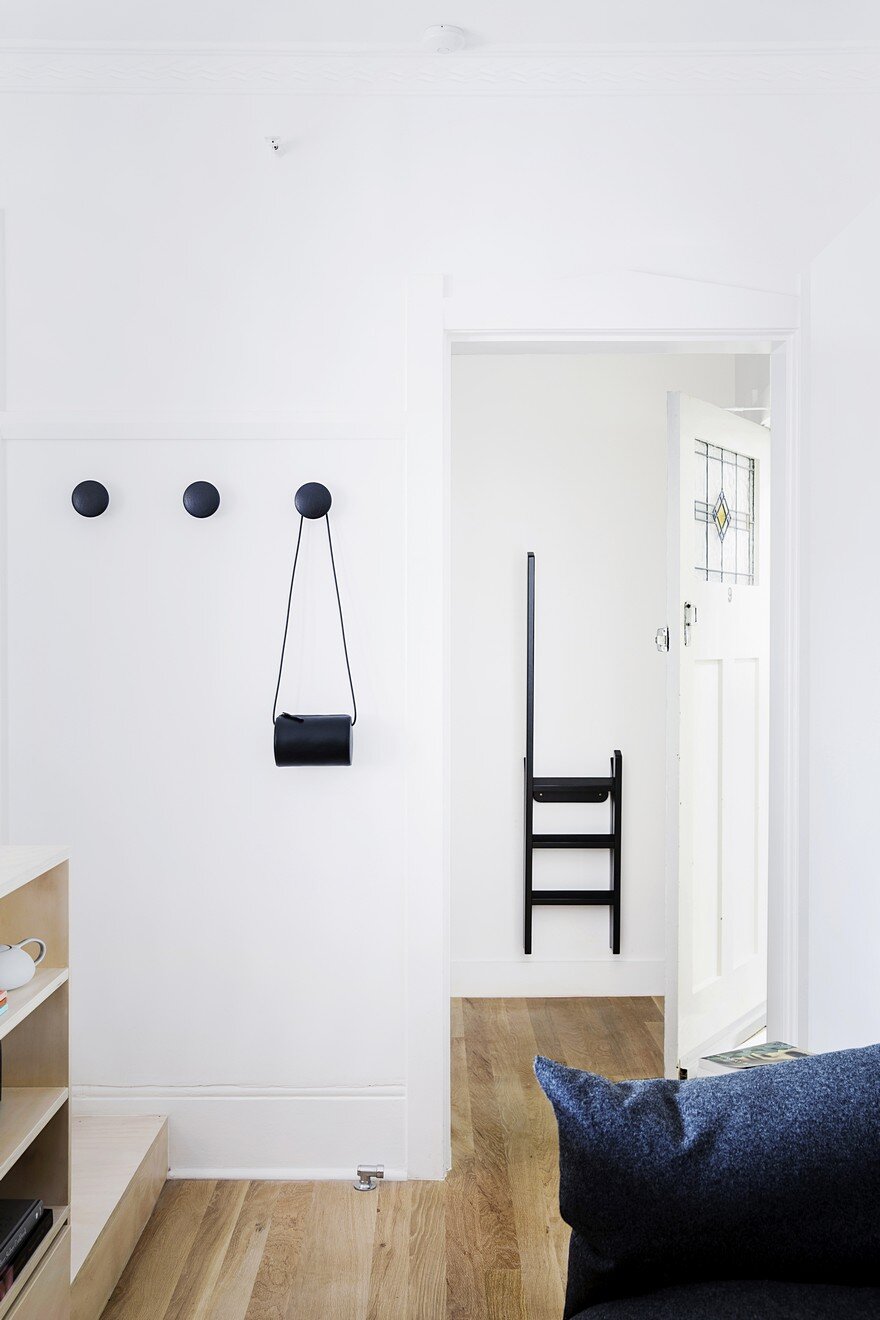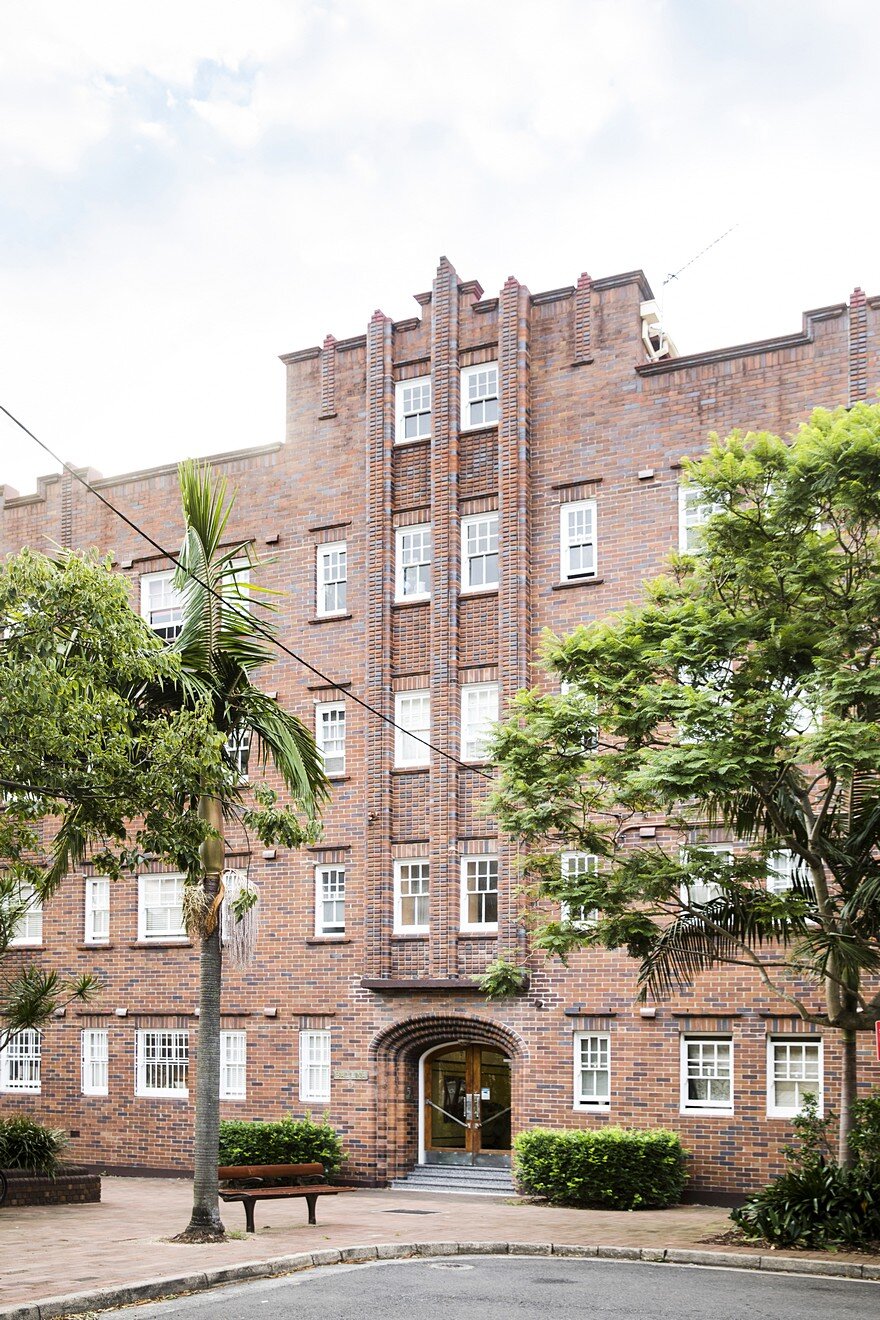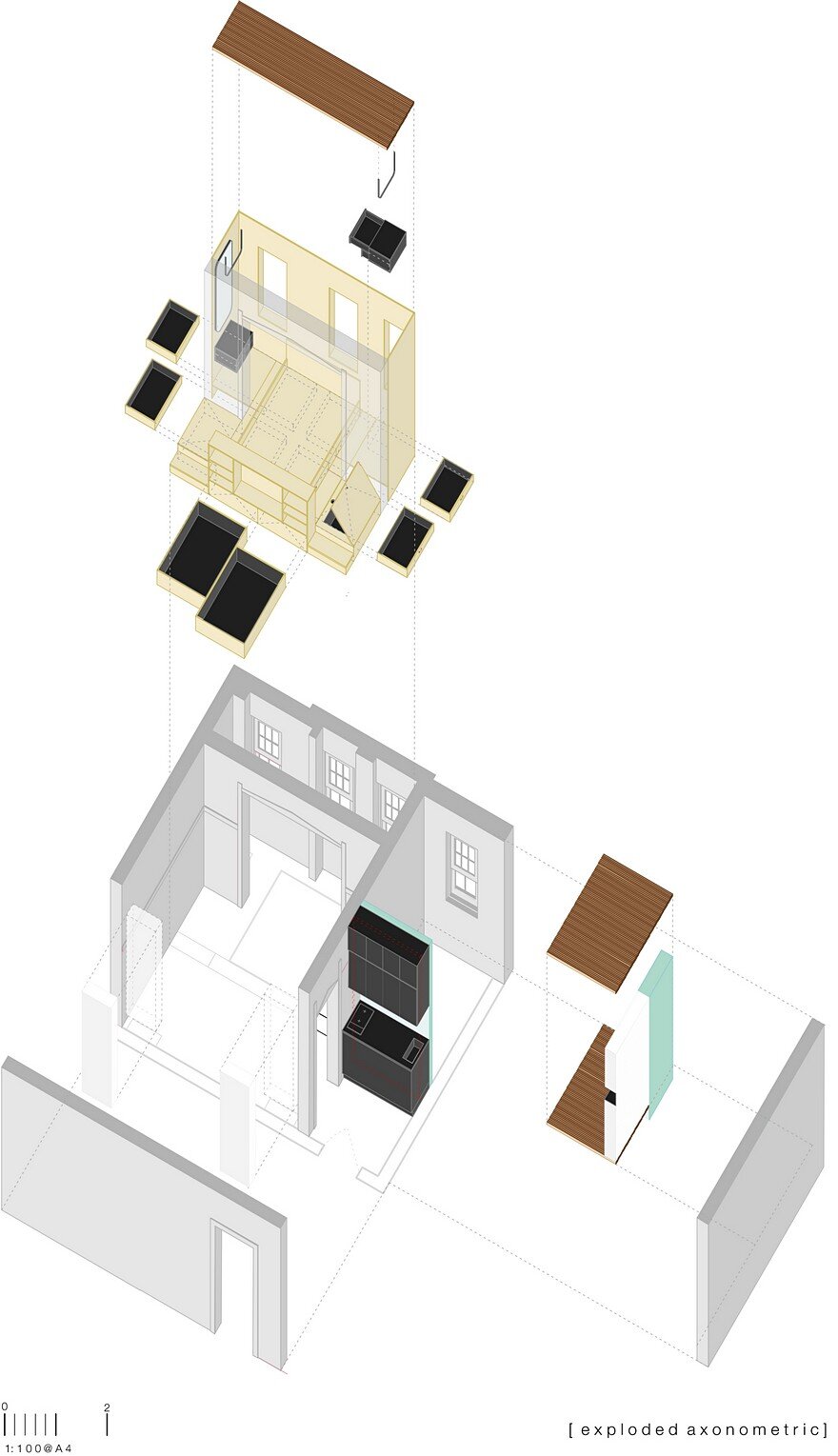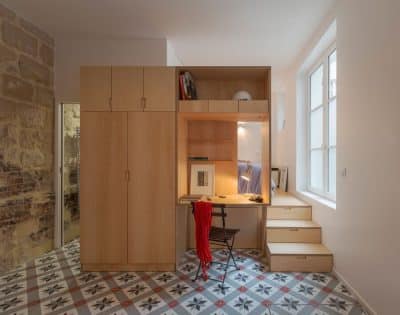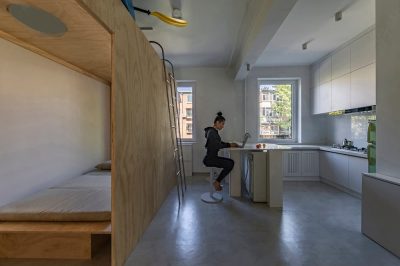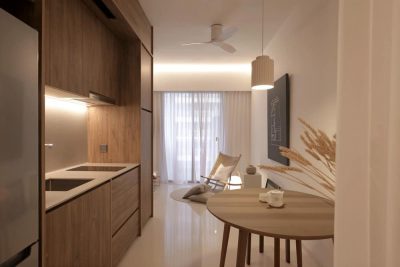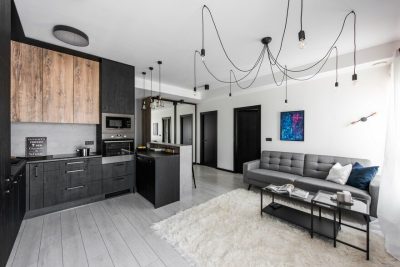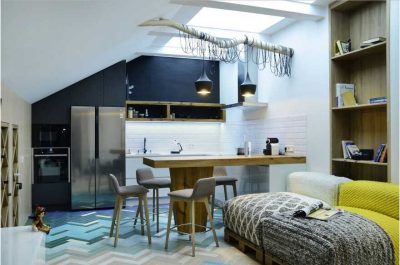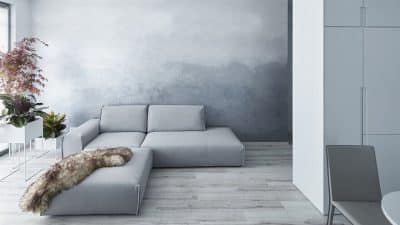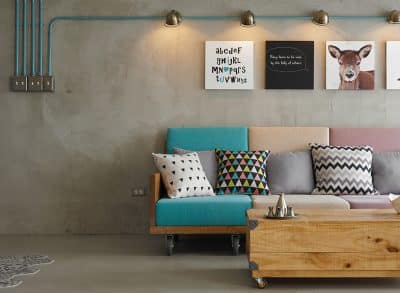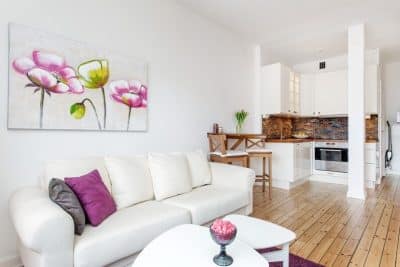Project: Nano Pad / Art Deco Studio Apartment
Architects: Studio Prineas
Lead Architect: Eva-Marie Prineas
Team: Bridget Webb, Jacqueline Lindeman
Location: Sydney, Australia
Area: 22 sqm
Photography: Chris Warnes
Nano Pad is an interior architecture project within a 22 sqm Art Deco Studio Apartment in Sydney’s inner city. The project was designed as short stay accommodation, as an alternative to short comings of existing “design hotels” in Sydney. Through this project, we sought to challenge traditional conventions of short stay accommodation while harnessing the growing potential of Sydney’s sharing economy. Central to the brief was the provision of additional amenity than that usually found in boutique accommodation.
The existing studio was compromised by poor planning with a comparatively over-sized and under utilised entry and lack of defined spaces. The design is conceived around a contemporary plywood insertion that sits within the existing fabric of the apartment. A new level change created by the bed platform and joinery subtly defines living and sleeping zones, utilising the high ceiling height and creating new opportunities for storage and space. The original exterior wall of the apartment, irregular in shape due to unmovable conduits and risers, is clad with lime-washed plywood that provides spatial continuity whilst heightening the drama of the existing openings.
The insertion allows the original Art Deco structure to be maintained. The use of lime-washed ply is punctuated by black steel details. Bespoke mirrors feature blackened steel frames with curved edges that act as contemporary iterations of the Deco Style. This curve is mimicked in the hanging rails.
Replanning allowed for a new small kitchen to take up an underutilised entry space separate from the living and sleeping areas.
Within the constraints of 22m2 apartment footprint, the studio’s symmetrical planning is retained and legible around the inserted sleeping platform. Walls remain largely unencumbered as storage space can be used underneath the bed and the total volume of the space can be read. Mirrors introduce views and light from adjacent windows.
Where necessary, wall hung joinery is designed free of the floor and wall features extending the perceived depth of the apartment. Concealed joinery lighting accentuates their independence.
The floor level of the bathroom was also raised, allowing plumbing to be easily relocated. A timber battened floor and ceiling introduces texture and tactility. The planning allows a number functions to take place with ease within the 22m2 and provides a short stay that feels like home.

